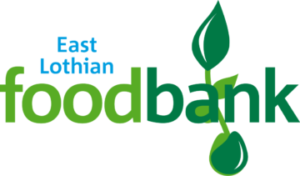East Lothian Foodbank’s Reserves Policy
Guidance
In formulating East Lothian Foodbank’s (ELFB) reserves policy, the Board of Trustees has referred to guidance provided by the Scottish Charity Regulator (OSCR) and the Scottish Council for Voluntary Organisations (SCVO).
Objectives
This policy provides a framework which seeks to ensure the East Lothian Foodbank will be able to meet its financial obligations as they fall due and have sufficient resources to enable it to achieve its charitable objectives.
In setting the parameters of the reserves policy, the Board of Trustees has considered the need to balance having sufficient reserves in order to minimize the possibility of insolvency whilst ensuring reserves are not withheld unnecessarily.
This reserves policy aims to give donors, funders, volunteers and beneficiaries confidence concerning how the trustees approach managing the organisation’s financial resources.
Definitions
Reserves represent the total funds available to the charity to enable it to meet its objectives. Reserves are made up of restricted and unrestricted reserves.
Restricted reserves are funds which have been raised to finance specified costs as declared by the donor.
Unrestricted reserves are funds that can be spent at the discretion of the Trustees in order to fulfil the charity’s objectives.
Designated funds are taken from unrestricted funds and are earmarked for specified uses or contingencies. Designated funds can be increased or reduced by the Trustees in order to ensure the smooth running of the charity.
East Lothian Foodbank Reserves Policy
1. Reserves Requirement
East Lothian Foodbank’s reserves requirement is defined as the charity’s last 6 months’ cumulative unrestricted operating costs (excluding ad hoc grants provided to third party charities during the period). The reserves requirement is updated monthly.
2. Reserves Cover
The charity’s reserves cover is calculated as a percentage showing by how much ‘unrestricted and undesignated’ funds exceed (or fall short of) the reserve requirement. This measure is reported to the Board on a monthly basis.
A. Minimum reserve cover ratio
The Board of Trustees have determined that the appropriate minimum reserves cover ratio is 100%. In other words, the Trustees believe that, as a minimum, the charity should aim to carry unfettered funds of at least 6 months historic operating costs at the low point of the charity’s funding cycle.
In coming to this decision, the Board of Trustees considered the variability of unrestricted receipts (mainly donations and grants) as well as the fact that some unrestricted costs (such as bought-in food and toiletries) can fluctuate materially. In addition, significant salary costs are financed via unrestricted funding.
Should the Board of Trustees believe that the reserves cover ratio will fall below 100% for an appreciable time, the Board will accelerate fund raising activities, consider enacting cost cutting measures and enhance financial monitoring. Given the recurring nature of a proportion of the foodbank’s receipts, it is believed that the foodbank will, if necessary, be able to reduce costs to match recurring income albeit with an associated diminution of the services it currently provides.
In the unlikely event that the Board of Trustees believe that the reserves cover ratio may fall to below 50% cover, a wind down plan will be formulated by the Trustee Treasurer, in conjunction with the Foodbank Manager, and will be submitted to the Board of Trustees for approval. The Board will then give very careful consideration concerning the timing of its possible implementation, whilst doing everything in its power to improve the financial wellbeing of the charity.
B. Excess reserves
The charity’s receipts demonstrate a pronounced seasonal bias. Donations tend to increase markedly during the months of November, December & January. In determining whether the charity is carrying excess reserves, the Board of Trustees monitor the forecast reduction in reserves cover over the forthcoming 12 months.
Should the Board of Trustees believe that the minimum reserves ratio cover will be materially exceeded at the low point of the charity’s funding cycle, then the Board will look to promote additional services in accordance with the charitable purposes of the East Lothian Foodbank either internally or externally (via the funding of grants to charities within East Lothian which share the aims of the foodbank).
3. Designated funds
The Board of Trustees will designate funds prudently to meet probable future liabilities.
3. Reserves Statement
The ELFB’s reserves statement, giving the charity’s reserves position, is formally published once a year alongside the charity’s accounts.
A quarterly statement, approved by the Board, is also produced and can be provided to interested parties on request.
4. Reserves Policy Review
The East Lothian Foodbank’s reserves policy is formally reviewed annually by the Board of Trustees. However, the policy’s effectiveness is monitored monthly by the Board. The Board of Trustees reserves the right to adapt the policy, at any time, should circumstances dictate that it would be sensible to do so.
Approved by the Board of Trustees: 23/01/2024
Next formal review date: January 2025
Policy owner: Trustee Treasurer
